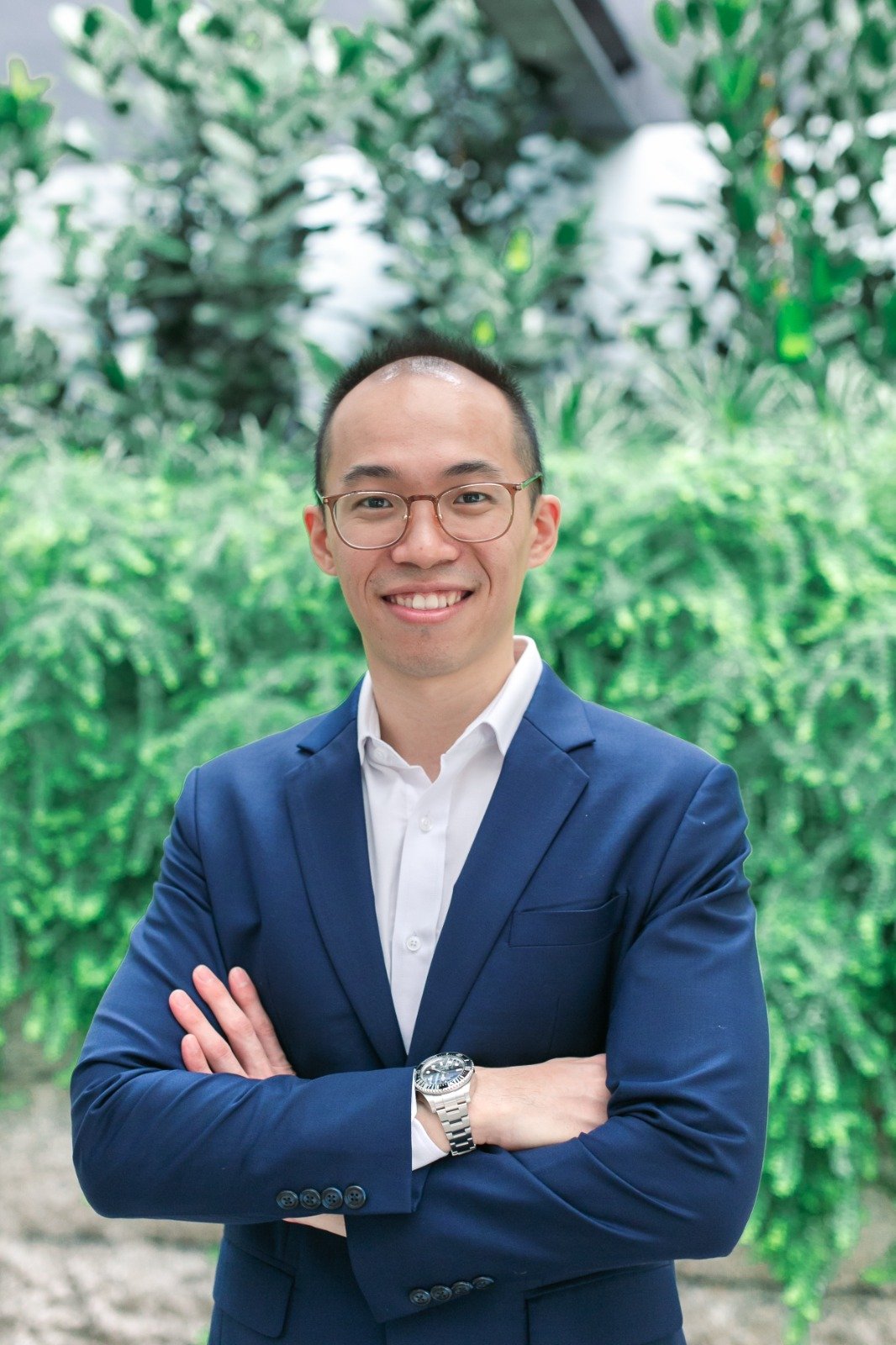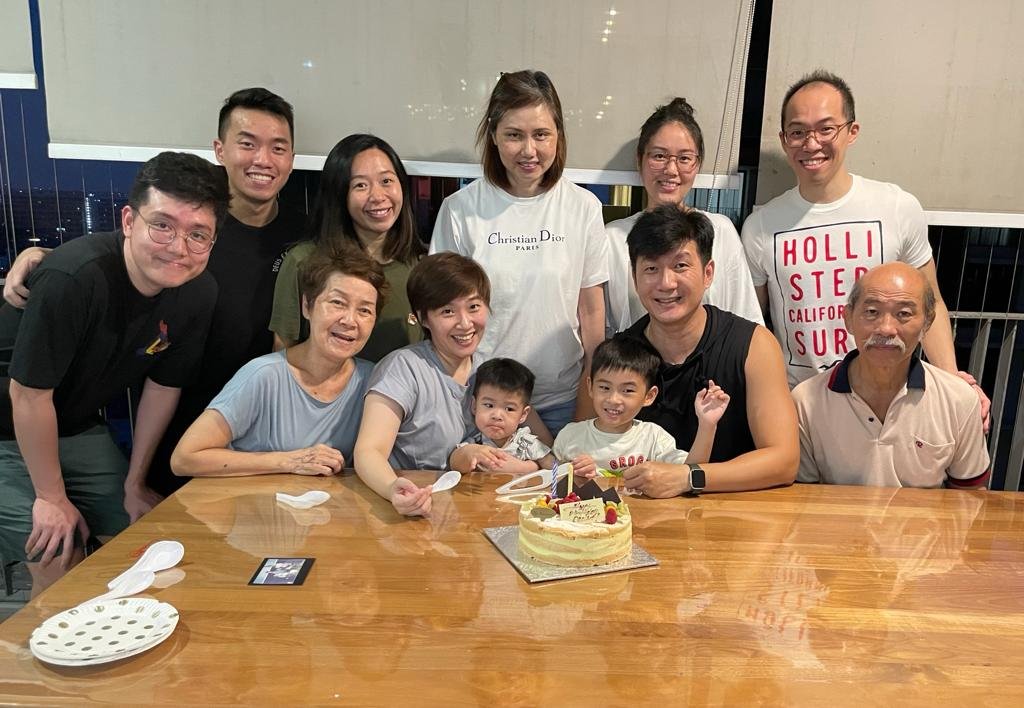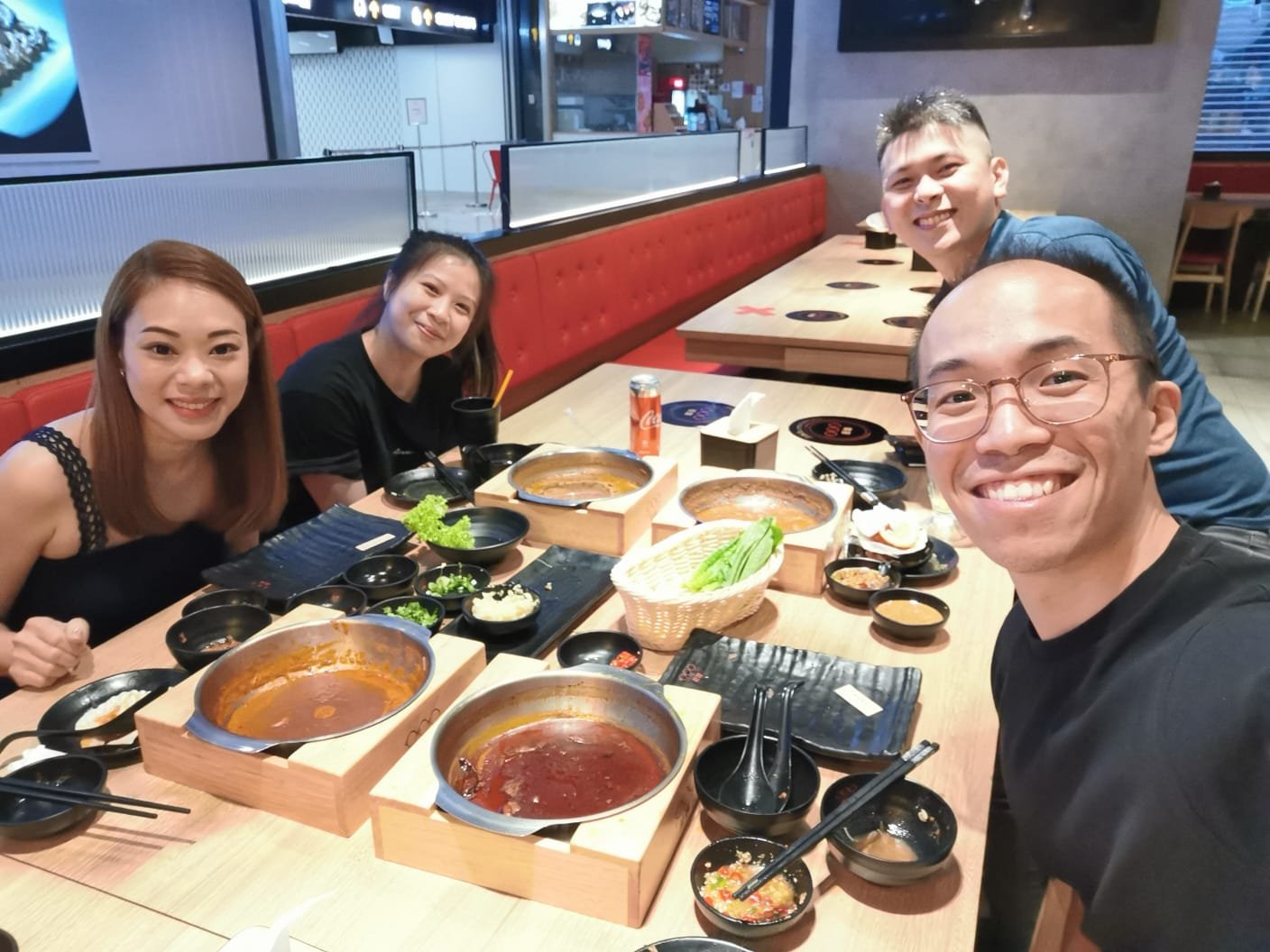A chat with Chun Hou
We sat down with Ng Chun Hou, Associate Director of Life First Advisory (LFA), to have a chat about how his experience working in the field of wealth management.
Why did you choose be a financial consultant?
As a fresh graduate, I started my career as a Personal Banker with the aim of helping people and earning money for doing that at the same time. Then, I wanted to provide the best holistic mix of solutions to help my clients navigate past their financial troubles.
Over time, I realised that I really enjoy sitting down, listening and speaking to people to help them identify their problems, pain points, or goals. Being able to then devise a useful strategy to guide them in life continues to motivate me today.
Helping my clients remains extremely important to me then and now. It brings me a lot of satisfaction and joy, especially when they thank me for doing a good job with their finances.
Chun Hou with his clients during a Star Wars movie premiere
Over time, I found my previous role as a Personal Banker to be limiting. I wanted to do more, and I knew I had to venture out on my own to achieve that.
What are your personal values?
I have to say that my personal values have been greatly influenced by my parents, both of whom I’m extremely grateful to. They taught me and my siblings to always be prepared by planning ahead.
I recall that my parents gave me and my siblings a piggy bank each when we were young and emphasised the need for us to save a part of our allowance. As our piggy banks filled up over time, we would empty it together and count how much money we had saved. We would then bring the money to the bank and keep it in our accounts.
At that time, of course, there was no i-banking and we had to bring our physical bank books for the transaction! Seeing how much money I had in my bank book allowed me to calculate how much money I could set aside to buy gifts for myself and my friends.
Chun Hou with his family
Because of this habit of saving and planning ahead since young, I developed a habit of looking at situations with a three, five or 10 year outlook. I don’t just see things at their surface value at the present moment in time. I will always think about the best way to react to various future scenarios and plan for rainy days.
Of course, to know all these is one thing, and to be able to apply it well to various circumstances faced by my clients is another.
I am not someone who simply executes.
It is very important to me that my clients understand the financial plan and how it can help them achieve their goals so that we can work together towards it. Only when clients understand the financial plan fully can we iron out the kinks and align our expectations - This process is very valuable to me.
I am someone who is eager to learn new skills and take on challenges. I recall when I first joined the industry, most advisors around me were reaching out to their friends on their life insurance needs. This meant that they are only working at night after their friends knocked off from work. This meant that there were a lot of ‘free time’ in the day.
I brainstormed about how I could maximise my time to go beyond. This was how I started speaking to corporations to find out more about their business insurance needs.
Chun Hou giving a talk to corporations.
Over time, my expertise with business insurance proved to be useful as some of my clients eventually started businesses of their own. I had the knowledge and capabilities to give advice on how to manage insurance based on different business needs, from SMEs to MNCs.
Due to the nature of my job, I have the benefit of meeting many people from all walks of life. I see myself as a hub connecting friends and clients to achieve a win-win situation.
Everyone grows and becomes better together.
Can you share some memorable customer encounters?
I remember the time when I spent about seven hours at a friend’s place discussing about their financial future. They were a young couple with two children as well as responsibilities to fulfil for their parents. As you can imagine, there were a lot of things to map out, which can be overwhelming for young parents.
I had to first help them understand and list all concerns, prioritise these concerns, and make sense of what their current plans were. I then pointed out blind spots which were missed, and looked at solutions that could bring them to their goals.
At the end of the meeting, we had unknowingly spent seven hours discussing on these matters. On my way home, I received a text from them thanking me for helping them view their finances holistically.
My client felt relieved after the meeting knowing that our strategy has been reviewed together thoroughly, and that everything is set in motion.
She valued and appreciated my work, and I’m happy that I gave her a peace of mind.
In fact, I recall that I was out for dinner at a kopitiam with my wife one day. She noticed that there were a lot of uncles drinking beer with their friends there and commented that after my retirement, I may also be like one of these uncles. I replied that I would prefer to enjoy my beer at a nice bar if I wanted to. She then said something that impacted me - she mentioned that some of my close friends may not be able to do that.
The light-hearted conversation got me thinking. It is true that some of my close friends might actually not be able to maintain their lifestyle after they stop working due to a lack of planning.
Planning is always a tough conversation, but a necessary one. I feel that it is my responsibility to help my friends or clients see the importance of planning. To thank them for placing their trust in me, I know I need to deliver.
What do clients say about you?
I am not an order taker. I don’t implement what clients think they need. My job is to provide what they really need.
In fact, I believe that when it comes to financial planning, the less uncertain the client is, the better. This way, we can co-shape our strategy together with a strong direction in mind. Subsequently, it is my job to identify the best way to achieve their goals, even if it means getting them to understand and see things from a different perspective.
To me, taking the time to listen is crucial.
By listening, I can not only understand my client better, but also highlight blind spots missed.
What is your personal financial planning psychology?
Do not be reactive, be proactive. Think ahead and do not be stuck in the present moment.
Regular portfolio reviews are crucial to me. Their life plans may have changed, or an unexpected life milestone may have come up. I need to be updated with these to tweak the financial plan accordingly.
I regularly share relevant articles to clients to keep them up to date with the latest insurance of investment news too.
What do you do for fun?
I love hanging out with friends and often invite them to my place to catch up over dinner and drinks. While we cannot do this in a large group due to Covid-19, we still meet up in smaller groups now.
I also enjoy watching K-dramas. These days, I have been watching The Hungry and The Hairy on Netflix because of its interesting take on food, culture, and way of living in Korea.
What is one quote that you keep relooking at when the going gets tough?
When the going gets tough, the tough gets going.
I believe in focussing on solving the problem, then on the stressor.
If you were not a financial consultant, what will you be now?
I have had this conversation with my friends and my wife. To be honest, I cannot imagine doing anything else. I love what I do, and will not have it any other way.







